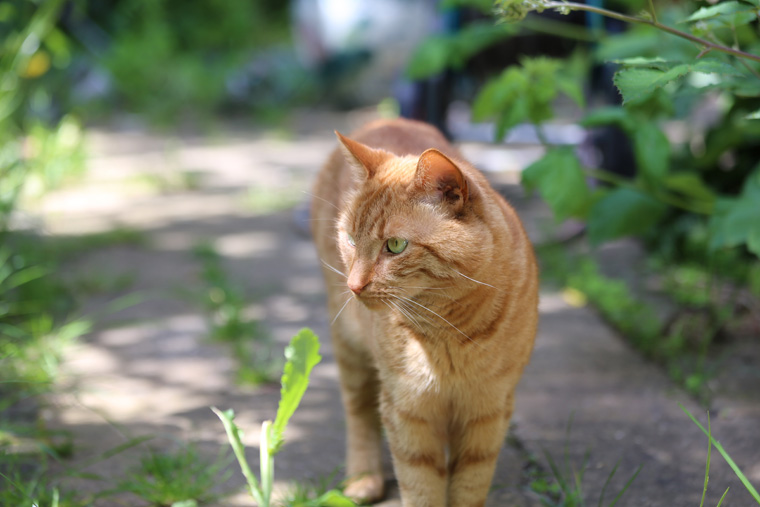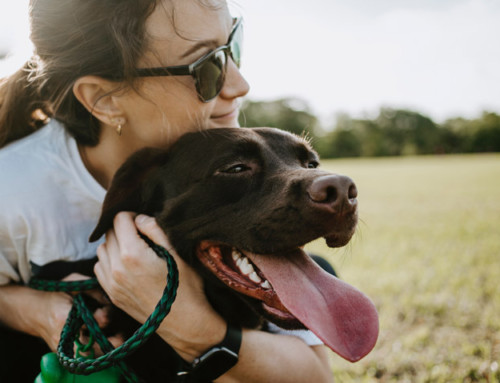Previous studies have shown that a relatively high proportion of Australian cats are infected with feline immunodeficiency virus. However, more recent data shows that 15% of cats in Australia with outdoor access test positive for feline immunodeficiency virus. That’s equivalent to approximately one in seven cats! It also means that Australia has one of the highest rates of feline immunodeficiency virus (FIV) in the world.
Wondering what exactly feline immunodeficiency virus is? Well, FIV is a fatal virus that weakens the immune system in cats. To put it in perspective, it’s looked upon as a feline equivalent to HIV (Human Immunodeficiency Virus).
Similar to humans infected with HIV, cats infected with FIV and less able to fight infections. This leaves the cats at higher risk of developing feline Aids, which can be fatal.
How to tell if your cat’s at risk
Understanding how at risk your cat is of contracting FIV is important. The following key factors may mean your cat is at high risk.
- Your cat goes outside often
- He/she sometimes gets into fights with other cats
- There are stray cats in your area
FIV transmission occurs via bite wounds from an infected cat (usually during a cat fight) and can cause serious and potentially fatal diseases in cats by damaging their immune system. This in turn can predispose infected cats to chronic and recurrent infections of various types. FIV has also been linked to kidney disease, neurological disease, chronic gingivostomatitis (inflammation of the gums), skin disease and weight loss. Certainly, there are some cats with FIV that continue to live a fairly normal life with an average lifespan. However, for other infected cats, the outcome can be devastating or even fatal.
Cats infected with FIV may show a range of symptoms but common signs include:
- Lethargy
- Swollen lymph nodes
- Weight loss/lack of appetite
- Persistent diarrhoea
- Recurrent infections (skin, respiratory or urinary)
We know there are approximately 4.9 million cats in Australian households and more than 80% of these cats have some form of outdoor access. This means that a large number of our feline friends are at risk.
Preventing FIV infection
Of course, the best way to protect your cat is by keeping them away from infected felines, which means keeping them indoors. However, this is not always practical or feasible. As such, it’s important to look at other ways of protecting our cats.
Dr Mark Westman, a member of an expert panel of Australian veterinarians that developed best practice guidelines for the management of FIV in cats in 2021 says, “Infection with FIV can have serious consequences. Sadly, once a cat has been infected with FIV, there is no cure. However, careful management can greatly enhance their quality of life.
“Vaccination is recommended for pet kittens and cats whose owners are unable to keep their cats away from the risk of being bitten by an FIV-infected cat. Even if pet owners initially plan to keep their kitten or cat indoors when they first join the family, unplanned lifestyle changes can mean that they may end up having outdoor access.
“This is why it is important to adopt practices that help prevent disease to ensure cats are safe and protected. Fortunately, Australia is one of the few countries with a FIV vaccine available to prevent FIV infection.”
The FIV vaccine involves three doses 2-4 weeks apart. Vets can administer the vaccine at the same time as other routine vaccinations. Kittens that have not yet been allowed to roam outdoors do not need any prior testing.
On the other hand, cats that have had outdoor access should undergo a FIV blood test prior to vaccination. Just to ensure they haven’t already contracted the virus. Once cats are fully vaccinated an annual booster is required to maintain their protection levels.
Key messages for cat owners
Every cat owner wants to do the best for their cat and keep them safe. Any cat owner who is concerned about the potential risk of FIV should take the following actions:
Talk to your local veterinarian about FIV and vaccination for your kitten and/or cat.
- Consider keeping your kitten or cat exclusively indoors, or use secure outdoor access such as a cat enclosure or a secure garden with supervision.
- If your cat is not kept exclusively indoors or in a secure outdoor area, don’t leave them unsupervised when outdoors.
- Adopt a prevention protocol to ensure your cat(s) are safe and protected.
Being proactive and taking a few necessary steps can help to greatly reduce your cat’s risk of infection and help them live a long and healthy life.
- Information sources:
- Animal Medicines Australia Pets and the Pandemic Report 2021.
- Johnston, L., et al. (2017) Demographics, lifestyle and veterinary care of cats in Australia and New Zealand. Journal of Feline Medicine and Surgery, 19(12), 1199-1205.
- Boehringer Ingelheim Animal Health. Nov 2021. Kitten and cat owners warned about a potentially fatal virus feline immunodeficiency virus (FIV). [Media Release]
Photo by Oscar Fickel on Unsplash







Leave A Comment